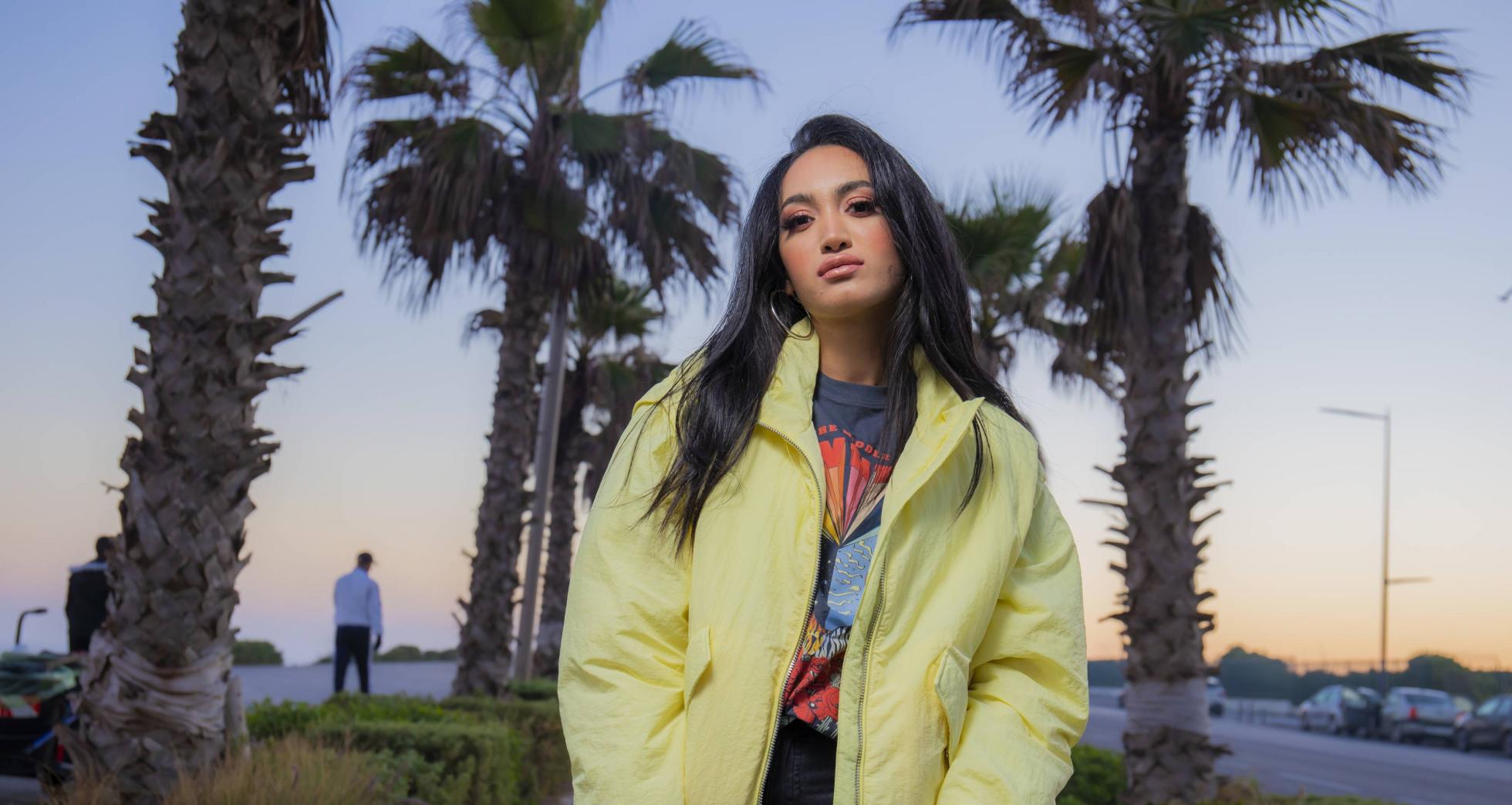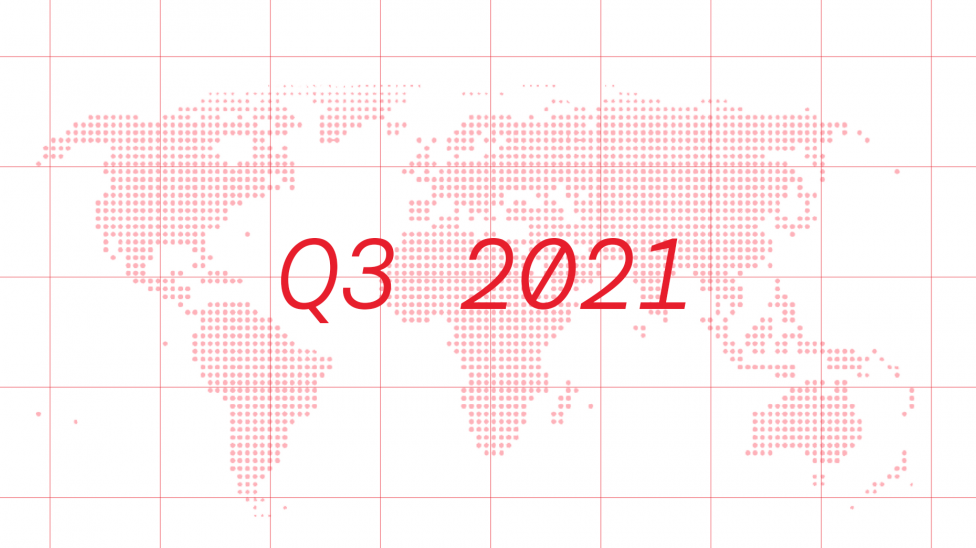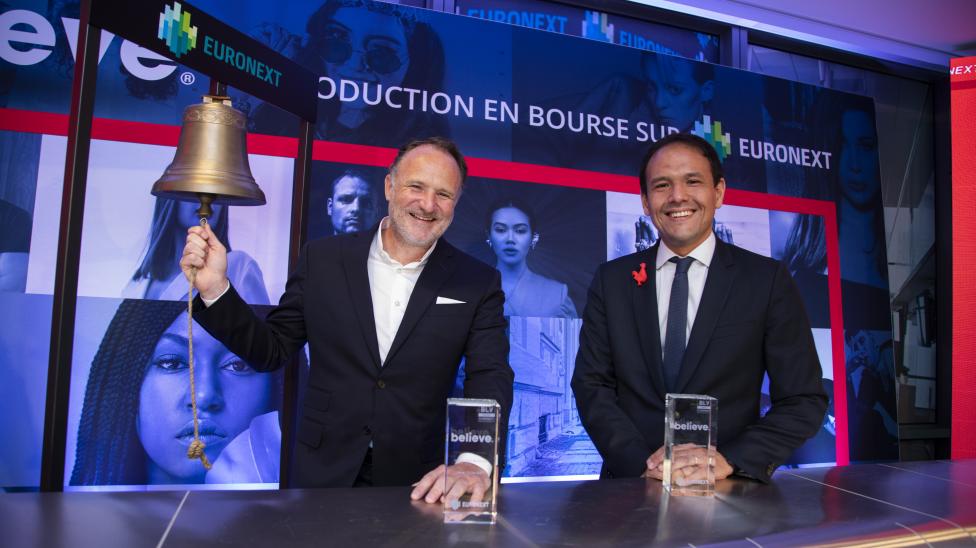
“Female and Diverse” - the face of the Arab independent scene

It’s not a secret that women around the globe have to work twice as hard to get the same recognition as their male peers, and the music industry is not an exception. The recent study “Be the change: Women making music 2021” shows that about 81% of the women surveyed in it feel that way. This is also the case in the MENA region, where it’s common for female artists to auto censor themselves away from the #MeToo movement because of fears of retaliations from other members of the scene. Despite this, there is a thriving scene of Arab female independent artists that are working hard for their dreams and developing successful music careers in a way that would have been very hard to imagine just a couple of years ago.
“If I wanted to be in another industry other than the Arabic pop I had to create it myself” - Blu Fiefer
Ever since the golden era of Egyptian Cinema, record companies in the Middle East had focused greatly on producing Arab pop. However, digitalization across the region and social changes that resulted from the Arab Spring of 2010 - 2012 opened a window for new alternative music scenes. These spaces served as a place where young people could express their freedom beyond the rigities of mainstream expectations and allow women to grab the spotlight on their own terms. A couple of years into the 2010’s, the coming of age of music streaming platforms in the region revealed the great potential of these scenes to grow into an industry of its own. Ever since, companies such as Believe have been taking an active role in helping these musicians to go from managing their careers as a 1 person DIY label into an efficient operation that can reach music markets all across the globe.
“As an independent artist you have to worry about everything: brand image, social media, website, make sure you push and push. It clouds your work” - Shébani
Nowadays Arab music is experiencing a big wave of creativity, diversity and professionalism that will surely leave a mark on the sounds of global pop. We can see this in the growing number of successful independent women artists solidifying their place in the industry. Here is a sample of 10 of them, ranging all the way from niche avant garde electronics to artists that jump-started their career through regional talent TV shows.
Zaynab
Zaynab (Morocco) is a singer that first blew up in the music industry with appearances on TV shows such as X-Factor and the 9th Season of the Star Academy Arabia. After spending a period of her life off stages, she announced a big comeback last year. As 2021 moves forward, her momentum is riding strong with her latest hit “Kifi Kif Nas”. A song and video that proves that her groomed looks and pop aura aren’t a limitation to show herself as a strong and independent woman to the audience.
Maritta Hallani
Although she was first known in the music business as the daughter of the famous singer Assi El Hallani, Maritta (Lebanon) has made a huge career for herself, gathering more than 3M followers on Instagram and string of awards. Her style also focuses on printing her own local style to international pop sounds with a hybrid style that is strongly transmitted via the music. You can always expect an infectious mediterranean syncopated sunny feel good vibe.
“Women still have to fight for better conditions, better pay, and no sexualization” - Zaynab
Nesma Mahgoub
Nesma Mahgoub (Egypt) is a singer that rose to notoriety after winning the 8th edition of the Star Academy Arabia, which then led her to being casted for singing the Arabic vocals for Disney’s “Frozen” movie song “Let it Go”. When doing her own music, such as in “Kol Shams”, she has a unique and fresh way of combining both middle eastern percussion and melodies with the funkiest beats possible - an amazing groove hard to find elsewhere.
Sandy
Ever since resurging from a musical impasse that ended a couple of years ago, Sandy (Egypt) has been a blockbuster draw within the Egyptian music charts. The success of her most recent single Ezayak Elnaharda is a living proof of that. In the past she’s mentioned that her background picks on influences that can be as wide as Amr Diab or Samira Saeed, all the way to Michael Jackson or even Metallica. This musical sensibility and long career in the industry could be the reason why her unique Egyptian pop style feels so fresh, being able to mix seamlessly traditional darbouka aesthetics with new hip hop production values.
“I am as hybrid as the life I have been able to lead so far and the music I have sincerely enjoyed.” - POPYTIRZ
Blu Fiefer
Blu Fiefer (Lebanon) is known for picking up on the signature sound of Timbaland meets Nelly Furtado productions of the 2000’s and revamping it for 2021’s trap aesthetics. After gathering momentum with her first releases sung in English, she is using her latest single and video “Sint el Ew” to switch to Arabic lyrics and explore a more localist sound. One that turns up the volume of those Middle Eastern melodies and percussions that were already embedded in Timbaland's music pallet. Blu is one of the very few female self-produced hip-hop artists, she recently founded her own production label Mafi Budget.
Najwa Farouk
Najwa Farouk (Morocco) is one of those songwriters that can connect in an intimate way with the audience even if she is singing from a stage that has thousands of people gathered around. This is probably why her stripped down cover of “Mawjou3 galbi” has reached more than 80M views since its release in 2017. Most recently, tracks like DAMAA expand her signature sound to musicalities closer to Spanish songwriters such as Alejandro Sanz, which makes us dream about how powerful a collaboration between those two could be.
“There is one advantage to self-production [...]. No one gets to tell you what to do or what not to do. I am totally free to choose the songs I want and produce them whenever I want.” - Nesma Mahgoub
Nada
Nada (Morocco) is also printing her own local style on global music, with the uniqueness that her range of influences seems to be directed towards indie classics such as Coldplay, as well as French Rock and a bit of Billie Eilish’s songwriting style. We are certain that we will keep hearing more about this promising prospect, who has already earned the AFRIMA Award for Best Female Artist in Northern Africa in 2019.
Shébani
Shébani (Iraq - UAE) is a singer, sonwriter and producer that in just a couple of years has moved on from singing covers on Youtube from her room to open the concert of Jorja Smith and Liam Payne in Dubai in front of thousands of people. Inspired by new RnB and UK sound aesthetics, every release reveals a wider evolution of her artistic persona without losing the intimate romantic vibe of laying late at night in your room dreaming about love. One thing that excites us about her is that on every release we see her inner voice become louder and louder and her connection with her feelings much more emotional.
“Having started in this industry at such a young age I was never able to impose my artistic vision [..] Yet, insisting on reaching my goal, believing in myself, never giving up, and becoming selective on whom I worked with, is what has brought me to where I am today.” - Sandy
POPYTIRZ
POPYTIRZ (Tunisia) is an artist that gives new rap an ultra cosmopolitan vibe by combining left field electronics with new trap beats and a hybrid back and forwards between trilingual lyrics, neo soul chords and Arabic melodies. The sound and visual aesthetics of her videos might make her seem like a niche artist at first glance, but a closer look reveals that she has the right amount of musical references to connect with trendy audiences all around the world.

